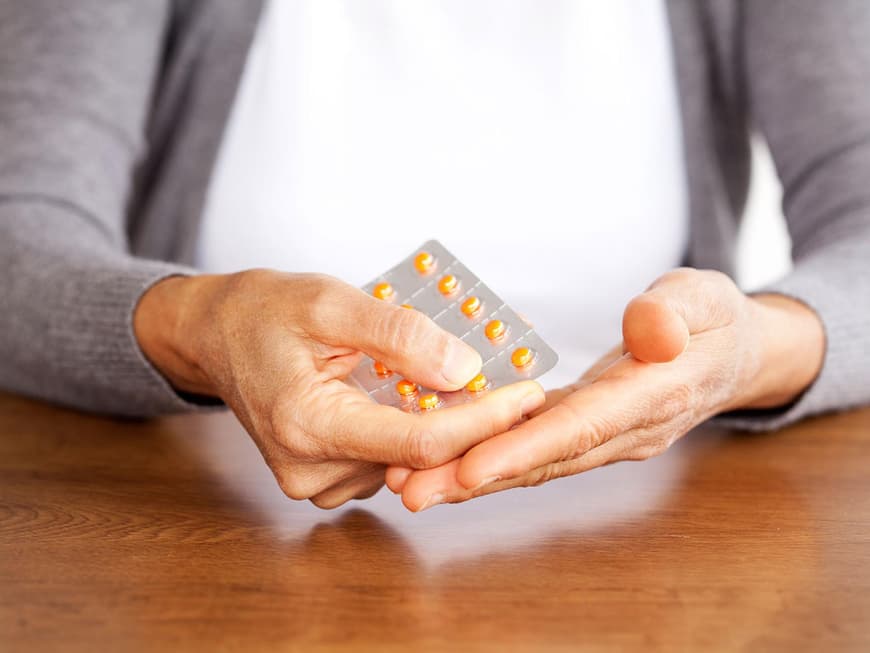
In hormone replacement therapy, the hormone deficiency of the menopause is compensated for with artificial hormones. However, the aim is not to restore hormone levels as they were before the menopause, but only to alleviate symptoms such as hot flushes, insomnia and mood swings.
A large study showed risks
Hormone therapy is controversial: in 2002, an American study showed that the therapy can increase the risk of breast cancer and heart attacks. This is why hormone preparations have a bad reputation today: for fear of cancer and other dangerous side effects, most women try to get by without them.
Starting early is safer
However, a new study from Denmark has now shown that hormones are not always dangerous. The women who took part were on average 50 years old and had only recently gone through the menopause. They had been taking hormones for around ten years. The risk of breast cancer in these women was not higher afterwards and their risk of heart attack was even lower than that of women of the same age who had not taken artificial hormones.
They are not suitable for every woman
Before the hormones are prescribed, there is a thorough consultation with the gynecologist. After all, they are not suitable for every woman. Anyone who has already had a thrombosis or stroke, suffers from high blood pressure or disorders of blood clotting or lipid metabolism should avoid hormones. The risk of thrombosis increases - especially for smokers. Herbal hormones such as Siberian rhubarb (pharmacy) also help with mild symptoms of the menopause.
3 fallacies about the menopause
The menopause begins around 50: In fact, the menopause begins in your mid-40s. This is because the ovaries are already producing fewer sex hormones and periods are already becoming more irregular.
Menopausal symptoms are always hormonal: although the drop in oestrogen levels is responsible for hot flushes, age and changes in lifestyle also often cause mood swings and physical problems.
Sex becomes problematic: It is often not hormones that are responsible for declining desire, but couple problems and psychological stress.






